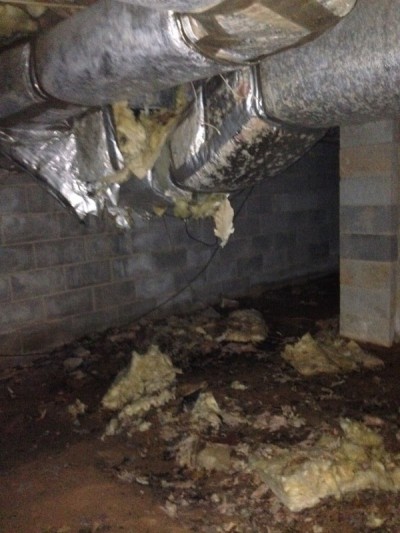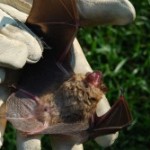Wildlife lover? Not so much anymore. I mean, can’t the critters be wild in the woods rather than in my house? Cute little masked bandits? Out in the woods, yes. But, raccoons in my Huntersville, North Carolina home? Not so much.
Cute little masked bandits? Out in the woods, yes. But, raccoons in my Huntersville, North Carolina home? Not so much.
These clever little rodents are adroit survivalists. As wooded areas are eradicated they migrate to urban areas. You may have one claiming squatter’s rights in your attic right now. Your home won’t survive their residency intact. While there, it may chew through wiring, tear out insulation to make a nest and leave toxic droppings behind.
Also adept at reproduction, it has a gestation period of only 63 to 65 days on average. Mother raccoon will find a place to nest before the two to five kits are born. (Is the crawl space under your home available?)
Father raccoon disappears from the scene when mating season is over. Many males, including some human ones, make themselves scarce in the face of impending parenthood.
The adult weighs between eight and twenty pounds and has dense gray fur with the distinctive black mask. In a few rare cases, the male has reached sixty pounds. This critter is intelligent and extremely adaptable to new habitats and frigid weather conditions. Out in the woods, it feeds on invertebrates, vegetation and small mammals such as field mice. In urban areas it feasts on gardens and in garbage cans.
In many areas it is illegal to kill or trap and release these interlopers. You may find a humane and responsible raccoon removal service to trap them alive and move them back to the wild woods. But, not before they vandalize your attic or basement. Your insulation is ripped to shreds to make a nest. Your furnace and air conditioner wiring got in the way and was chewed to destruction. Raccoon damage can be expensive. And, you will long remember the odor of droppings that are left behind.
After the cleanup and a couple thousand dollars’ worth of new wiring and insulation, you wisely raccoon-proof your home. You install plastic spikes designed to keep them from climbing up a rain gutter. You cut down tree limbs that might help them gain access. You smile to yourself thinking, “No more raccoons in my home.”
But beware; this hungry little rodent may be back. She’ll be dropping by to see if your basement is accessible.


